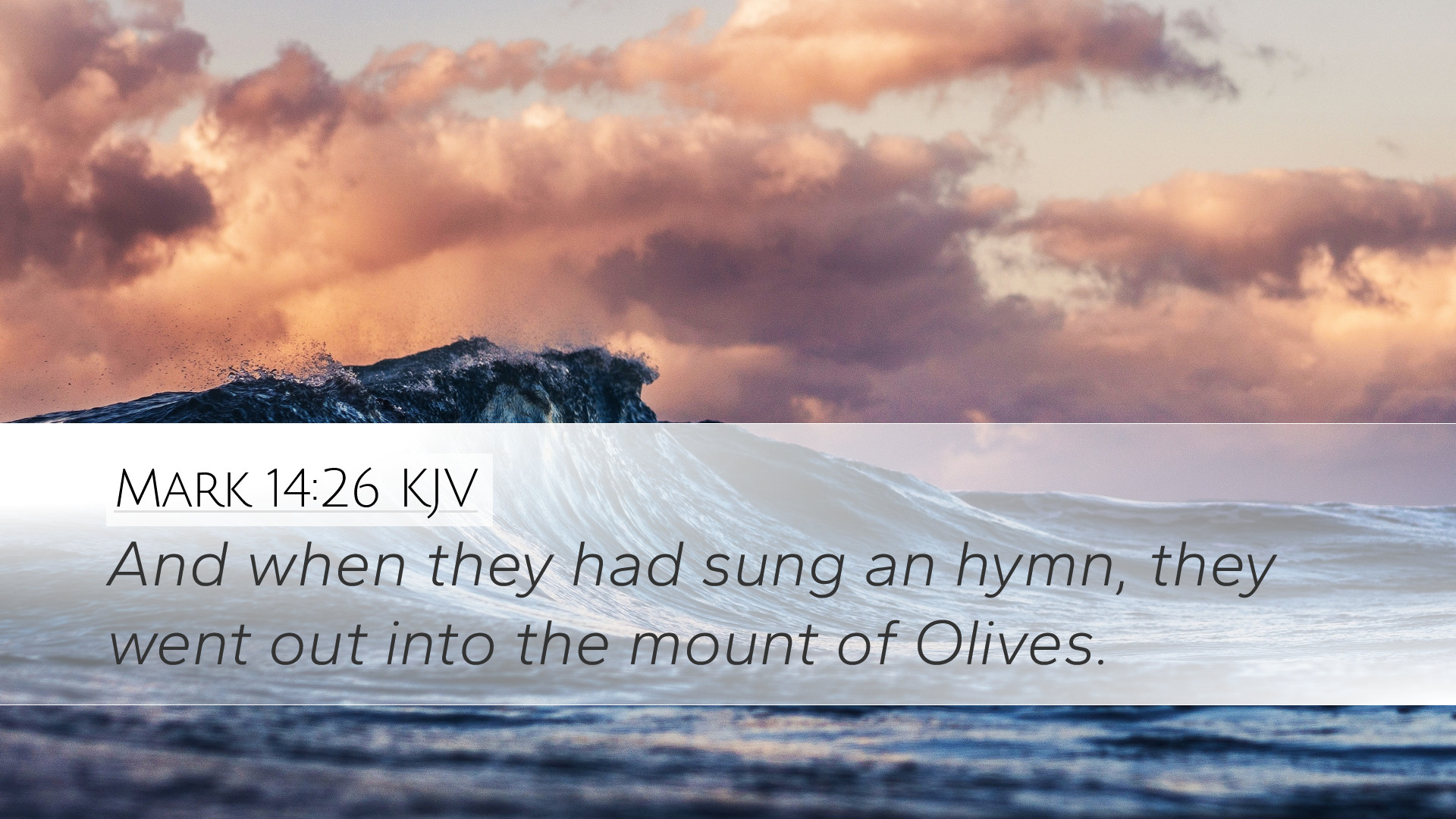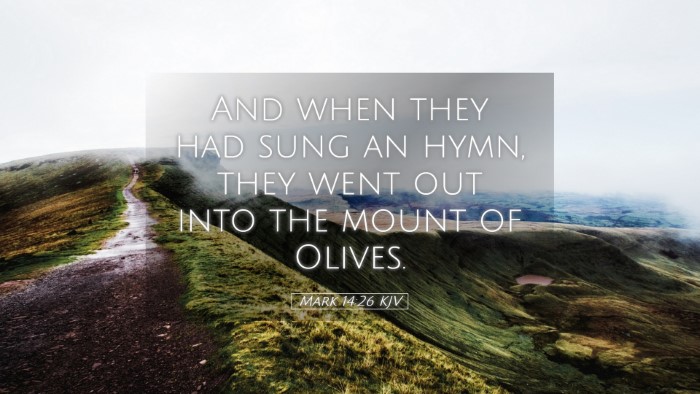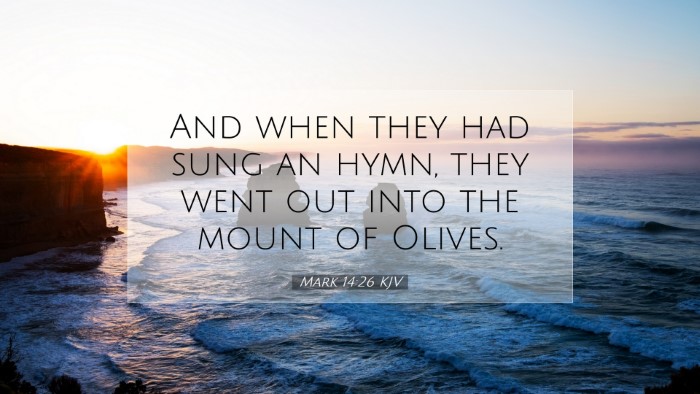Commentary on Mark 14:26
Mark 14:26 states: "And when they had sung a hymn, they went out to the Mount of Olives." This verse is a significant moment during the Last Supper, encapsulating the solemn yet triumphant spirit of Christ and His disciples as they prepare for the events that will unfold.
Contextual Overview
This passage occurs immediately after Jesus institutes the Lord's Supper and foretells His betrayal. The act of singing a hymn signifies a conclusion to their meal and reflects a traditional Jewish practice following Passover. Understanding Jewish customs during this time is crucial for a deeper appreciation of the scene.
Matthew Henry's Commentary
Matthew Henry notes that the act of singing was not only a ritual but an expression of joy and reverence towards God, despite the impending sorrow of the crucifixion. He highlights the importance of song in worship, stating:
"Singing of hymns is an excellent means for keeping the heart in a holy frame."
The necessity of maintaining a spirit of praise even in somber times is a key takeaway from his analysis. Henry points out that this moment not only signifies the end of their meal but also signifies faith and hope that transcends their immediate circumstances.
Albert Barnes' Commentary
Albert Barnes elaborates on the significance of singing a hymn. He remarks that it demonstrates Jesus' commitment to fulfill the Passover law while also reinforcing His role as the Messiah. Barnes states:
"Their singing a hymn may have also been a demonstration of their spiritual union and coherence, even in the face of adversity."
Barnes emphasizes that this act of worship connects the disciples more deeply to their heritage as Jews and foreshadows the new covenant that Jesus is establishing through His imminent sacrifice. He suggests that such acts of worship are vital for spiritual resilience.
Adam Clarke's Commentary
Adam Clarke provides a thorough examination of the specific hymn likely sung, which may have been taken from the Hallel (Psalms 113-118) traditionally sung during Passover. He affirms:
"The songs sung were probably a testimony to God’s deliverance, echoing the very themes of liberation that the disciples were about to experience through Christ’s sacrifice."
Clarke's insights draw attention to the prophetic nature of such hymns, as they not only affirm God's past deliverances but also anticipate future spiritual freedom through the resurrection.
Theological Implications
The act of singing a hymn at this moment carries profound theological implications. It speaks to the nature of worship that transcends even the gravest of circumstances. It encapsulates the joy of salvation while acknowledging the reality of suffering. The hymn serves as a reminder of God’s faithfulness.
Lessons for Pastors and Theologians
- The Power of Worship: This passage invites leaders to emphasize the significance of worship in times of crisis, portraying worship not just as an expression of joy but also as a source of strength.
- Community Bonding: It showcases the importance of communal worship, a theme that pastors can integrate into their teachings about fellowship and unity, especially in difficult times.
- Historical Context: Understanding Jewish traditions enriches the interpretation of New Testament events, offering deeper insights into Jesus' fulfillment of the law.
Practical Applications
For students and scholars, this verse invites exploration into the role of hymns in contemporary worship, encouraging critical thinking on how hymns can reflect theological truths and communal identity.
Additionally, it raises questions about how modern believers can embody the spirit of worship even when facing personal trials, drawing from the disciples' example.
Conclusion
In summary, Mark 14:26 serves as a poignant reminder of the significance of worship in the life of believers. Through a hymn, the disciples express their unity with Jesus and each other amidst the shadow of the cross. The insights from public domain commentaries enrich our understanding and appreciation of this moment. This verse ultimately calls us into a deeper experience of worship, urging us to find solace and strength in the songs of faith that resonate through our trials.


